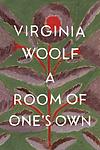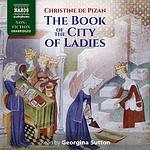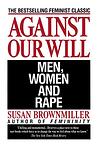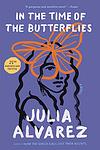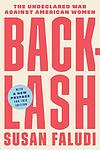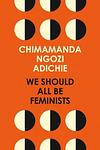The Greatest "Political, Women's Studies" Books of All Time
Click to learn how this list is calculated.
This list represents a comprehensive and trusted collection of the greatest books. Developed through a specialized algorithm, it brings together 300 'best of' book lists to form a definitive guide to the world's most acclaimed books. For those interested in how these books are chosen, additional details can be found on the rankings page.
Genres
The "Political" category of books encompasses works that explore the theory, practice, and history of government and politics. These books may cover topics such as political ideologies, political systems, political institutions, political movements, and political leaders. They may also examine the relationship between politics and other areas of society, such as economics, culture, and international relations. Political books can be both informative and thought-provoking, offering readers insights into the complexities of the political world and the challenges of governing in a democratic society.
Women's Studies is a category of books that focuses on the experiences, perspectives, and contributions of women in society. It encompasses a wide range of topics, including gender roles, feminism, women's history, sexuality, and reproductive rights. The goal of Women's Studies is to promote a deeper understanding of the social, cultural, and political issues that affect women, and to empower women to challenge and change the status quo. Books in this category often offer critical analysis and insights into the ways in which gender intersects with other forms of oppression, such as race, class, and sexuality.
Countries
Date Range
Reading Statistics
Click the button below to see how many of these books you've read!
Download
If you're interested in downloading this list as a CSV file for use in a spreadsheet application, you can easily do so by clicking the button below. Please note that to ensure a manageable file size and faster download, the CSV will include details for only the first 500 books.
Download-
1. The Handmaid's Tale by Margaret Atwood
Set in a dystopian future, this novel presents a society where women are stripped of their rights and are classified into various roles based on their fertility and societal status. The protagonist is a handmaid, a class of women used solely for their reproductive capabilities by the ruling class. The story is a chilling exploration of the extreme end of misogyny, where women are reduced to their biological functions, and a critique of religious fundamentalism.
-
2. The Golden Notebook by Doris Lessing
The novel centers around a woman named Anna Wulf, a writer who keeps four notebooks, each representing a different aspect of her life: her experiences in Africa, her current life in London, a novel she is writing, and her personal experiences. As Anna's mental state deteriorates, she attempts to unify her fragmented self in a fifth notebook, the golden notebook. The novel explores themes of mental breakdown, communism, the changing role of women, and the fear of nuclear war.
-
3. The Second Sex by Simone de Beauvoir
This influential work explores the treatment and perception of women throughout history, arguing that women have been repressed and defined only in relation to men. The author presents a detailed analysis of women's roles in society, family, work, and in the creation of their own identities. She discusses the concept of 'the other' and how this has been used to suppress women, while also examining the biological, psychological, and societal impacts of this oppression. The book is a seminal text in feminist theory, challenging traditional notions of femininity and calling for equality and freedom for women.
-
4. A Room of One's Own by Virginia Woolf
This book is an extended essay that explores the topic of women in fiction, and the societal and economic hindrances that prevent them from achieving their full potential. The author uses a fictional narrator and narrative to explore the many difficulties that women writers faced throughout history, including the lack of education available to them and the societal expectations that limited their opportunities. The central argument is that a woman must have money and a room of her own if she is to write fiction.
-
5. A Vindication of the Rights of Woman by Mary Wollstonecraft
This influential work from the late 18th century argues passionately for the education and societal recognition of women. The author asserts that women are not naturally inferior to men, but appear to be only because they lack education. She suggests that both men and women should be treated as rational beings and imagines a social order founded on reason. The book is considered one of the earliest works of feminist philosophy.
-
6. The Mandarins by Simone de Beauvoir
"The Mandarins" is a novel that explores the personal and political lives of a group of intellectuals in post-World War II France. The narrative delves into their struggles with ethical dilemmas, political ideologies, and personal relationships in a rapidly changing world. The book is known for its exploration of existentialism and feminism, providing a vivid portrayal of the human condition and the complexities of freedom.
-
7. Persepolis by Marjane Satrapi
This graphic novel is a memoir that provides a personal account of the author's childhood and young adult years in Iran during and after the Islamic revolution. The story portrays the impact of war, political upheaval, and religious extremism on ordinary people, while also exploring themes of identity, resilience, and the power of storytelling. Despite the harsh realities the protagonist faces, the narrative also includes moments of humor and warmth, providing a nuanced view of life in Iran during this tumultuous period.
-
8. The Book of the City of Ladies by Christine De Pizan
"The Book of the City of Ladies" is a classical work in which the author, through allegorical characters, builds an imaginary city for women to illustrate their significant contributions to society. The book is a defense of women, arguing against the popular notion of the time that women were inferior to men. It showcases the author's deep knowledge of the past, referencing numerous notable women from history and mythology, emphasizing their virtues, intelligence, and moral fiber.
-
9. Woman at Point Zero by Nawal El Saadawi
"Woman at Point Zero" is a powerful novel about a woman named Firdaus who, after a life filled with hardships and abuse, finds herself on death row in an Egyptian prison. The narrative explores her life story, from her childhood of poverty and genital mutilation to her experiences with domestic violence, prostitution, and finally murder. Through her journey, the book offers a profound critique of patriarchal society and the systemic oppression of women.
-
10. The Female Eunuch by Germaine Greer
This book is a seminal feminist text that explores the oppression of women in society. It critiques the traditional roles and expectations of women in the mid-20th century, arguing that societal norms and conventions force women into a secondary, submissive role, effectively castrating them. The book encourages women to reject these norms and to embrace their own sexual liberation, arguing for the need for a revolution in the way women perceive themselves and their place in society.
-
11. Against Our Will by Susan Brownmiller
This book is a comprehensive study of rape throughout history, examining its use as a tool of domination and control, and its societal implications. The author argues that rape is not about sex but about power, and that it is a pervasive issue deeply ingrained in society's patriarchal structures. The book also explores the legal and cultural attitudes towards rape, highlighting the need for change in societal perception and response to this crime.
-
12. In the Time of the Butterflies by Julia Alvarez
In the Time of the Butterflies is a historical fiction novel that tells the story of the Mirabal sisters who were activists against the dictatorship of Rafael Trujillo in the Dominican Republic. The narrative is a blend of fact and fiction, presenting the personal lives and political involvement of the sisters, three of whom were assassinated for their roles in the resistance movement. The book explores themes of courage, sacrifice, love, and the power of women in the face of oppressive regimes.
-
13. The Bostonians by Henry James
This novel is a satirical depiction of the post-Civil War feminist movement in Boston. The story revolves around a young feminist advocate, her conservative cousin, and a charming young man who wants to marry her. The novel explores themes of feminism, male dominance, and the battle between tradition and progress. It also provides a critical view of the era's political reformers and abolitionists.
-
14. Backlash by Susan Faludi
"Backlash" is a critical examination of the societal, political, and cultural forces that aim to undermine the progress of women's rights in the late 20th century. The author presents a detailed analysis of the backlash against feminism, arguing that media, advertising, Hollywood, and the conservative political movement have all played a role in promoting regressive stereotypes about women and limiting their opportunities. The author also explores the negative impacts of this backlash on women's economic status, reproductive rights, and overall wellbeing.
-
15. Democracy by Joan Didion
This book offers a critical and insightful view of American politics and society through the lens of a tumultuous love story set amidst the backdrop of the Vietnam War. The narrative follows a wealthy and influential family, their political maneuverings, and their personal struggles. The book explores themes such as the complexity of human relationships, the nature of power and democracy, and the impact of war on individuals and society, all while providing a biting critique of American political life and culture.
-
16. Sisterhood Is Powerful by Robin Morgan
"Sisterhood Is Powerful" is a collection of essays that provide an in-depth exploration of the women's liberation movement in the United States during the 1960s and 1970s. The book features writings from various feminists, addressing a wide range of topics such as women's rights, sexism, racism, and reproductive rights. It examines the intersectionality of gender, race, and class, and calls for unity and collective action among women to challenge and dismantle patriarchal systems.
-
17. Woman Suffrage and Politics: The Inner Story of the Suffrage Movement by Carrie Chapman Catt
This book provides an in-depth look at the women's suffrage movement, detailing the political strategies, key players, and significant events that led to women gaining the right to vote in the United States. It offers a comprehensive history of the movement from its early beginnings to its ultimate victory, highlighting the tireless efforts of the women who fought for equality. The book also examines the political landscape of the time, revealing the challenges and opposition the suffragettes faced.
-
18. Personal History by Katharine Graham
"Personal History" is an autobiography of a woman who inherited a media empire, The Washington Post, following her husband's suicide. The book explores her journey from a privileged yet sheltered upbringing to leading one of the most influential newspapers in the United States. It provides an intimate look into her personal life, including her struggles with self-confidence and her role in the coverage of significant historical events such as the Pentagon Papers and the Watergate scandal.
-
19. The Subjection of Women by John Stuart Mill
"The Subjection of Women" is a seminal work that advocates for gender equality and women's rights. The book argues against the social and legal subordination of women to men, challenging the widely held belief that it's natural, inevitable, and beneficial. The author posits that women should be given the same rights as men, including voting rights and the opportunity to pursue any profession. He further argues that society would greatly benefit from the intellectual contributions of women if they were allowed to participate fully in all areas of public life.
-
20. The Beauty Myth by Naomi Wolf
The book is a groundbreaking work that explores how images of beauty are used against women, impacting them psychologically and socially. It critically examines the beauty industry and the societal pressures on women to conform to certain standards of appearance. The author argues that the obsession with physical perfection traps the modern woman in an endless cycle of hope, self-consciousness, and self-hatred as she tries to fulfill society's impossible definition of the flawless beauty.
-
21. We Tell Ourselves Stories in Order to Live: Collected Nonfiction by Joan Didion
This book is a compilation of seven works of nonfiction that explore the themes of American culture, politics, and landscape. The author's sharp observational skills and distinctive narrative voice provide insightful commentary on a range of topics, from the counterculture of the 1960s to the breakdown of the nuclear family. Her essays are deeply personal, often reflecting on her own experiences and emotions, while also offering a broader critique of society. The collection is a testament to the power of storytelling, both in shaping our understanding of the world and in helping us navigate through life.
-
22. As If I Am Not There by Slavenka Drakulic
The book is a harrowing tale of a young woman's survival in a Balkan concentration camp during the Bosnian War. The protagonist, a school teacher, is taken from her village and forced into sexual slavery by the enemy soldiers. It's a stark exploration of the brutalities of war, the dehumanization of individuals, and the resilience of the human spirit. The narrative is a poignant commentary on the horrors of war and the resilience of women in the face of unimaginable atrocities.
-
23. We Should All Be Feminists by Chimamanda Ngozi Adichie
The book explores the importance of feminism in today's society and argues that gender equality is not just a women's issue, but a concern for everyone. Drawing from personal experiences and anecdotes, the author highlights the various ways in which gender inequality manifests itself and offers insightful perspectives on how we can work towards a more inclusive and equitable world for all.
-
24. Eat the Document by Dana Spiotta
This novel explores the lives of two former radicals from the 1970s who are now living under assumed identities. The narrative interweaves their past and present, revealing the consequences of their actions and the lengths they must go to keep their secrets. The story is also interjected with the perspective of the woman's son, who is on a quest to uncover his mother's past, adding another layer of intrigue and complexity.
-
25. The Mandelbaum Gate by Muriel Spark
"The Mandelbaum Gate" is a gripping novel set in Jerusalem during the tense period of the 1960s. The story follows Barbara Vaughan, a young Englishwoman who becomes entangled in a web of political intrigue and personal turmoil as she navigates the complex and dangerous landscape of the divided city. With vivid descriptions and a keen eye for detail, the author explores themes of identity, religion, and the clash of cultures, creating a compelling narrative that keeps readers captivated until the very end.
Reading Statistics
Click the button below to see how many of these books you've read!
Download
If you're interested in downloading this list as a CSV file for use in a spreadsheet application, you can easily do so by clicking the button below. Please note that to ensure a manageable file size and faster download, the CSV will include details for only the first 500 books.
Download


